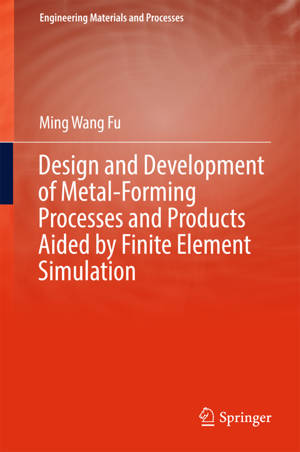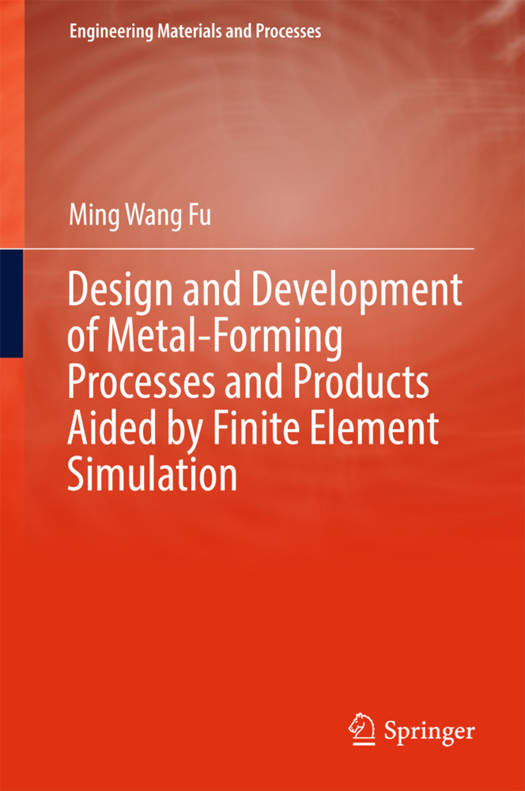
- Retrait gratuit dans votre magasin Club
- 7.000.000 titres dans notre catalogue
- Payer en toute sécurité
- Toujours un magasin près de chez vous
- Retrait gratuit dans votre magasin Club
- 7.000.0000 titres dans notre catalogue
- Payer en toute sécurité
- Toujours un magasin près de chez vous
Design and Development of Metal-Forming Processes and Products Aided by Finite Element Simulation
Ming Wang FuDescription
This book presents state-of-the-art research on forming processes and formed metal product development aided by the Finite Element Method (FEM). Using extensive and informative illustrations, tables and photographs, it systematically presents real-life case studies and established findings regarding various forming processes and methods aided by FEM simulation, and addresses various issues related to metal formed part design, process determination, die design and die service life analysis and prolongation, as well as product quality assurance and improvement.
Metal forming has been widely used in many industries. This traditional manufacturing process, however, has long been linked to many years of apprenticeship and skilled craftsmanship, and its conventional design and development paradigm appeared to involve more know-how and trial-and-error than in-depth scientific calculation, analysis and simulation. The design paradigm for forming processes and metal formed product development thus cannot meet the current demands for short development lead-times, low production costs and high product quality. With the advent of numerical simulation technologies, the design and development of forming processes and metal formed products are carried out with the aid of FEM simulation, allowing all the potential design spaces to be identified and evaluated, and the best design to ultimately be determined and implemented. Such a design and development paradigm aims at ensuring "designing right the first time" and reducing the need for trial-and-error in the workshop. This book provides postgraduates, manufacturing engineers and professionals in this field with an in-depth understanding of the design process and sufficient knowledge to support metal formed part design, forming process determination, tooling design, and product quality assurance and control via FEM simulation.
Spécifications
Parties prenantes
- Auteur(s) :
- Editeur:
Contenu
- Nombre de pages :
- 246
- Langue:
- Anglais
- Collection :
Caractéristiques
- EAN:
- 9783319464626
- Date de parution :
- 02-11-16
- Format:
- Livre relié
- Format numérique:
- Genaaid
- Dimensions :
- 156 mm x 234 mm
- Poids :
- 544 g

Les avis
Nous publions uniquement les avis qui respectent les conditions requises. Consultez nos conditions pour les avis.






